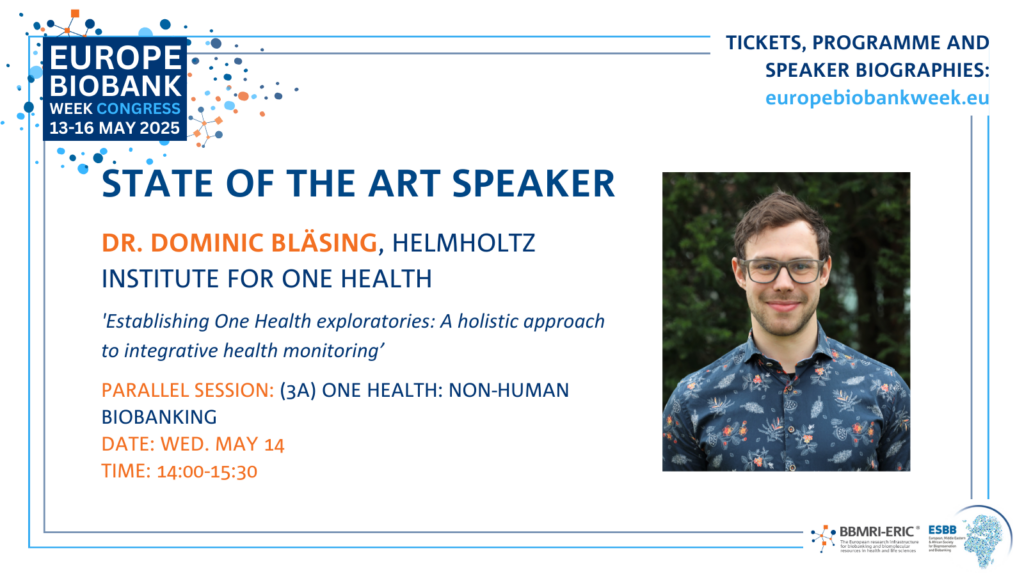
#EBW25 Previews: State-of-the-art speaker for 3A ‘One Health: Non-human biobanking’
Dr. Dominic Bläsing, Helmholtz Institute for One Health, will be the state-of-the-art speaker leading the panel session ‘One Health: Non-human biobanking‘. We have profiled his biography and abstract here.
Dr. Dominic Bläsing
Dominic Bläsing holds a PhD in applied ergonomics and brings extensive experience in psychological research across experimental, field, and epidemiological settings. He currently serves as a data coordinator at the Helmholtz Institute for One Health, focusing on data-driven approaches in health sciences and complex research infrastructures.
Abstract: Establishing One Health exploratories: A holistic approach to integrative health monitoring
The Helmholtz Institute for One Health (HIOH) is developing a network of One Health exploratories—spatially defined research areas designed for systematic, longitudinal monitoring of key indicators spanning human, animal, and environmental health. These exploratories will enable a participatory, integrated, transdisciplinary approach to better understand disease emergence, antimicrobial resistance, and ecosystem health dynamics. The first extensive sampling campaign is scheduled to begin in 2026, with ongoing long term HIOH activities (10 years+) and final preparatory projects ensuring a seamless launch of this ambitious initiative.
Current preparatory efforts include:
A) Networking and methodological integration: Building on expertise from previous population-based studies to optimise study designs, ensure data harmonisation, and facilitate interinstitutional collaboration.
B) Public engagement and participatory research: Involving all stakeholders from national and regional authorities to local authorities and communities in order to guarantee ethical study implementation, informed consent, and culturally sensitive methodologies.
C) Multifaceted sampling and diagnostic pipelines: various projects have been initiated to develop standardised protocols for environmental sampling, small-mammal monitoring, and optimised diagnostic workflows. Additionally, clinical surveillance programs, a human cohort study protocol, and integrated approaches for monitoring domestic animals are under development.
A key aspect of this initiative is compliance with international biobanking regulations and ethical considerations. In adherence to equitable research practices and national sovereignty over biological resources, aliquots of collected samples will be stored both in the partner countries and in Germany. This ensures data accessibility while respecting national policies, benefit-sharing principles, and the FAIR, CARE, and TRUST frameworks governing ethical biobanking.
Session details
- Date: Wednesday 14 May
- Time: 14:00-15:30